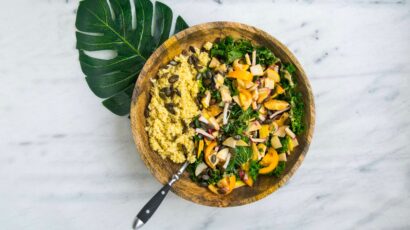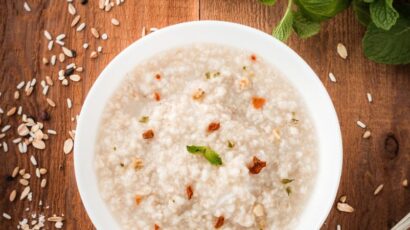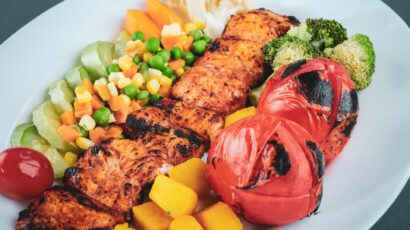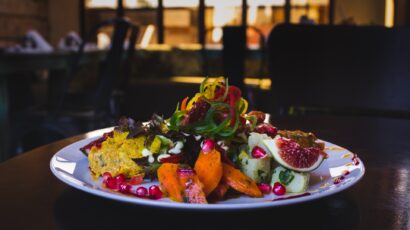Top foods and drinks for liver health
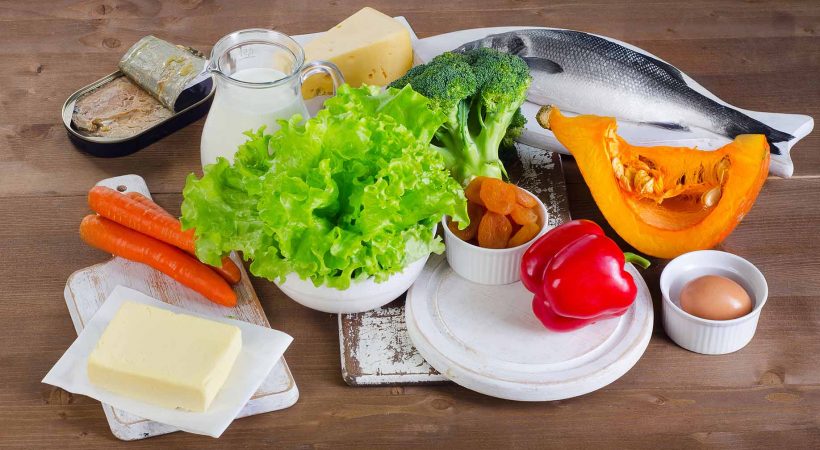
Some of the best foods and drinks that are good for the liver include:
1. Coffee
Drinking coffee offers protection against fatty liver disease.
A 2013 review that appears in the journal Liver International suggests that over 50 percent of people in the United States consume coffee daily.
Coffee appears to be good for the liver, especially because it protects against issues such as fatty liver disease.
The review also notes that daily coffee intake may help reduce the risk of chronic liver disease. It may also protect the liver from damaging conditions, such as liver cancer.
A 2014 study that appears in the Journal of Clinical Gastroenterology suggests that the protective effects of coffee are due to how it influences liver enzymes.
Coffee, it reports, seems to reduce fat buildup in the liver. It also increases protective antioxidants in the liver. Compounds in coffee also help liver enzymes rid the body of cancer-causing substances.
2. Oatmeal
Consuming oatmeal is an easy way to add fiber to the diet. Fiber is an important tool for digestion, and the specific fibers in oats may be especially helpful for the liver. Oats and oatmeal are high in compounds called beta-glucans.
As a 2017 study in the International Journal of Molecular Sciences reports, beta-glucans are very biologically active in the body. They help modulate the immune system and fight against inflammation, and they may be especially helpful in the fight against diabetes and obesity.
The review also notes that beta-glucans from oats appear to help reduce the amount of fat stored in the liver in mice, which could also help protect the liver. More clinical studies are necessary to confirm this, however.
People looking to add oats or oatmeal to their diet should look for whole oats or steel-cut oats, rather than prepackaged oatmeal. Prepackaged oatmeal may contain fillers such as flour or sugars, which will not be as beneficial for the body.
3. Green tea
Consuming green tea may help reduce overall fat content.
A 2015 study in the World Journal of Gastroenterology notes that green tea may help reduce overall fat content, fight against oxidative stress, and reduce other signs of nonalcoholic fatty liver disease (NAFLD).
It is important to note that tea may be better than extracts, as some extracts may damage the liver rather than heal it.
The study notes that there are still no specific recommendations for people with this condition to consume tea or tea extracts, but the link to liver health is promising.
4. Garlic
Adding garlic to the diet may also help stimulate the liver. A 2016 study that appears in the journal Advanced Biomedical Research notes that garlic consumption reduces body weight and fat content in people with NAFLD, with no changes to lean body mass. This is beneficial, as being overweight or obese is a contributing factor to NAFLD.
5. Berries
Many dark berries, such as blueberries, raspberries, and cranberries, contain antioxidants called polyphenols, which may help protect the liver from damage.
As a study in the World Journal of Gastroenterology suggests, regularly eating berries may also help stimulate the immune system.
6. Grapes
The study that features in the World Journal of Gastroenterology reports that grapes, grape juice, and grape seeds are rich in antioxidants that may help the liver by reducing inflammation and preventing liver damage.
Eating whole, seeded grapes is a simple way to add these compounds to the diet. A grape seed extract supplement may also provide antioxidants.
7. Grapefruit
The World Journal of Gastroenterology study also mentions grapefruit as a helpful food. Grapefruit contains two primary antioxidants: naringin and naringenin. These may help protect the liver from injury by reducing inflammation and protecting the liver cells.
The compounds may also reduce fat buildup in the liver and increase the enzymes that burn fat. This may make grapefruit a helpful tool in the fight against NAFLD.
8. Prickly pear
The fruit and juice of the prickly pear may also be beneficial to liver health. The World Journal of Gastroenterology study suggests that compounds in the fruit may help protect the organ.
Most research focuses on extracts from the fruit, however, so studies that focus on the fruit or juice itself are necessary.
9. Plant foods in general
Avocados and other plant foods contain compounds linked closely to liver health.
A 2015 study that appears in the journal Evidence-based Complementary and Alternative Medicine reports that a large number of plant foods may be helpful for the liver.
These include:
avocado
banana
barley
beets and beet juice
broccoli
brown rice
carrots
fig
greens such as kale and collards
lemon
papaya
watermelon
People should eat these foods as part of a whole and balanced diet.
10. Fatty fish
As a study in the World Journal of Gastroenterology points out, consuming fatty fish and fish oil supplements may help reduce the impact of conditions such as NAFLD.
Fatty fish is rich in omega-3 fatty acids, which are the good fats that help reduce inflammation. These fats may be especially helpful in the liver, as they appear to prevent the buildup of excess fats and maintain enzyme levels in the liver.
The study recommends eating oily fish two or more times each week. If it is not easy to incorporate fatty fish such as herring or salmon into the diet, try taking a daily fish oil supplement.
11. Nuts
The same study says that eating nuts may be another simple way to keep the liver healthy and protect against NAFLD. Nuts generally contain unsaturated fatty acids, vitamin E, and antioxidants. These compounds may help prevent NAFLD, as well as reduce inflammation and oxidative stress.
Eating a handful of nuts, such as walnuts or almonds, each day may help maintain liver health. People should be sure not to eat too many, however, as nuts are high in calories.
12. Olive oil
Eating too much fat is not good for the liver, but some fats may help it. According to the World Journal of Gastroenterology study, adding olive oil to the diet may help reduce oxidative stress and improve liver function. This is due to the high content of unsaturated fatty acids in the oil.
Foods to avoid
In general, finding balance in the diet will keep the liver healthy. However, there are also some foods and food groups that the liver finds harder to process. These include:
Fatty foods: These include fried foods, fast food, and takeout from many restaurants. Packaged snacks, chips, and nuts may also be surprisingly high in fats.
Starchy foods: These include breads, pasta, and cakes or baked goods.
Sugar: Cutting back on sugar and sugary foods such as cereals, baked goods, and candies may help reduce the stress on the liver.
Salt: Simple ways to reduce salt intake include eating out less, avoiding canned meats or vegetables, and reducing or avoiding salted deli meats and bacon.
Alcohol: Anyone looking to give their liver a break should consider reducing their intake of alcohol or eliminating it from the diet completely.
Summary
The liver plays an important role in the body. While it largely takes care of itself, a person can help maintain liver health by consuming some certain foods and drinks.
There are also many types of food that may harm the liver.
Choosing foods that are good for the liver can help a person avoid potential health issues in the future.





